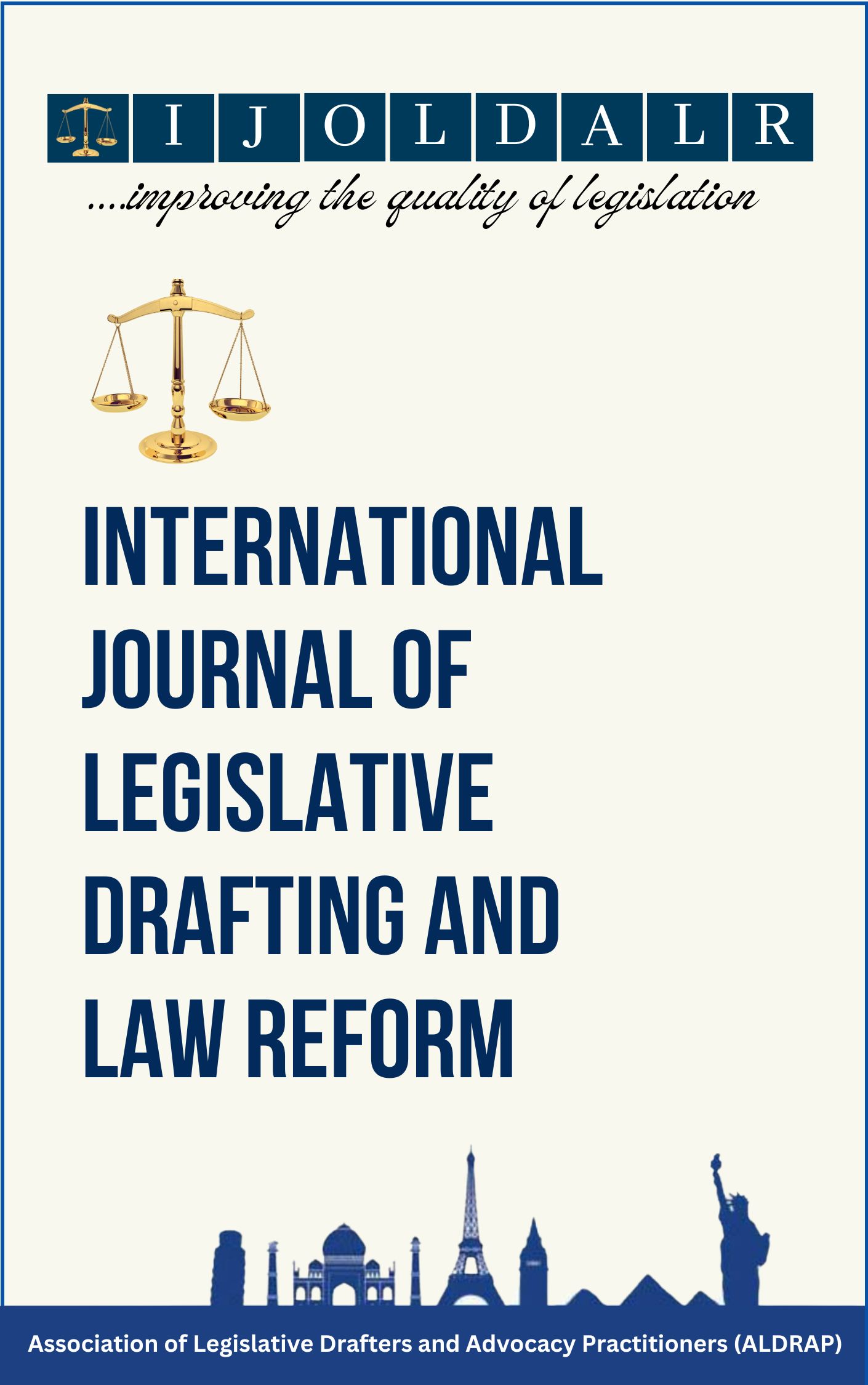Abstract
The drafting of implementing legislation is a specialized branch of legislative drafting. It is an area in which States, Inter-governmental organizations (IGOs) and International Non-governmental organizations (INGOs)have a special interest in the international community.
Implementing legislation refers to legislation giving effect to treaties. Sometimes, such legislation is also referred to as “uniform” or “enabling legislation”. Implementing legislation need to be differentiated from model legislation which gives effect to treaties as well as non-treaty instruments. Hence, model legislation is much wider in scope than implementing legislation and include decisions of State Parties to a treaty, Resolution of an international organization, decisions of Heads of State or even elaboration of treaty provisions by State Parties in a manner compatible with the object and purpose of a treaty.
In Common Law countries, implementing legislation is drafted by persons who are employedas legal draftsmen, legislative counsel or parliamentary counsel.In 1951, Sir Granville Ram, First Parliamentary Counsel of Great Britain, described the role of a parliamentary counsel in the following manner: “Most of them know that drafting of bills is done by a person called Parliamentary Counsel, who are seldom seen and never heardand whom they imagine to be ratherqueer persons engaged in mole-like activities beneath the surface of the legal world.” In this capacity, they provide a unique service to the State, especially in the transformation of international legal instruments into national legislation.
In Civil Law countries,implementing legislation is drafted by persons who are specialists in the field of a particular subject in the public servicewith which the legislation is concerned and not by person who are specially trained and employedby the Government for that purpose. In these countries, legislative style is less rigid and easy to comprehend. Sir William Dale in his book titled Legislative Drafting– New Approachadvocated the adoptionof civil law legislative style in Common Law countries. However, it is impossible to adopt this continental legislative style unless thereis a radical change in the mannerin which legislation is interpreted in Common Law countries.
The intergovernmental organizations (IGOs) such as the UN, EU, the Caribbean Community (CARICOM) also play an important role in the drafting of implementing and model legislation. IGOs provide legislative assistance to Member States with respectto implementation of international and regional treaty standards and norms. UNODC, ICAO, IMO and ILO have provided such implementing and model legislation to States. Likewise, the Commonwealth Secretariat has provided legal experts to assist Member States to become State Partiesto treaties and also to draft implementing and model legislation.



 National Library of Nigeria
National Library of Nigeria.jpg) Association of Nigerian Authors
Association of Nigerian Authors Nigerian Library Association
Nigerian Library Association EagleScan
EagleScan Crossref
Crossref